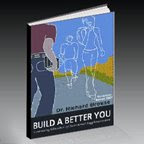 According to a Policy Statement released by the Official Journal of the American Academy of Pediatrics, published on February 22, 2010, Choking is a leading cause of morbidity and mortality among children, especially those aged 3 years or younger. Some of the primary causes of choking-related injury and death are food, coins and toys. The statement goes on to say that certain characteristics including shape, size and consistency, of certain toys and food increase their potential to cause choking among children.
According to a Policy Statement released by the Official Journal of the American Academy of Pediatrics, published on February 22, 2010, Choking is a leading cause of morbidity and mortality among children, especially those aged 3 years or younger. Some of the primary causes of choking-related injury and death are food, coins and toys. The statement goes on to say that certain characteristics including shape, size and consistency, of certain toys and food increase their potential to cause choking among children.The statement goes on to say that "Despite a strong gag reflex, a young child’s airway is more vulnerable to obstruction than that of an adult in several ways. The smaller diameter is more likely to experience significant blockage by small foreign bodies. Resistance to air flow is inversely related to the radius of the airway to the fourth power, so even small changes in the cross-section of the airway of a young child can lead to dramatic changes in airway resistance and air flow.
Mucus and secretions around a foreign body in the airway will reduce the radius of the airway even further and may also form a seal around the foreign body, making it more difficult to dislodge by forced air, such as with a cough or Heimlich maneuver. The force of air generated by a cough in an infant or young child is less than that in an adult; therefore, a cough may be less effective in dislodging a complete or partial airway obstruction during early childhood."
"The Centers for Disease Control and Prevention conducted an analysis of nonfatal choking episodes among children aged 14 years or younger treated in US hospital emergency departments during 2001 on the basis of data reported through the National Electronic Injury Surveillance System–All Injury Program (NEISS-AIP). Of an estimated 17 537 children aged 14 years or younger who were treated for nonfatal choking, more than half (59.5%) were treated for food-related choking, approximately one third (31.4%) were treated for choking on nonfood items, and the cause of choking for the remaining 9.1% was unknown. Almost 13% of all these choking episodes were associated with coins, and 19% were caused by candy or gum. These findings are similar to those reported in a comparative retrospective analysis of foreign-body–related injuries to children from 1920 –1932 and 1988 –2000, confirming that food and coins are the most common foreign bodies." For more information see Official Journal of American Academy of Pediatrics.








1 comment:
Small items are always a challenge around young children. Even older kids stuff too much in their mouths and can cause problems! Stay safe.
Post a Comment